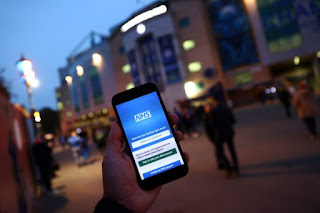Pharmacy First vital to amplify NHS digital prescription rollout, WHO report reveals
To lead the way in modernizing the UK's healthcare, the National Health Service (NHS) digitized the prescriptions. WHO mentioned this in their current digital regional report. Since January 2024, the NHS App in England has offered patients the opportunity to see statistics about their prescriptions. This represents a gigantic step in the area of healthcare which can be categorized as another stage in healthcare accessibility and efficiency. Over 33 million residents have taken the NHS app enabling the users to be 75% of the adult population. The app helps in online management of their health. The use of digital prescriptions enables patients to order repeated prescriptions online, in which they would past getting an appointment a GP.
This system has seen a spike in digital transactions, where one of the most dramatic increases has been in online transactions with the numbers reaching more than 3. The team have saved a total of 1 million repeat prescriptions processed on a monthly basis. For example, this digital way not only saves GPs approximately three minutes per of a written prescription insurance saving for health centers significantly both time and cost.
The other support initiative is the launch of Pharmacy First it was stressed because it has helped the NHS to lessen the load for the GPs by giving pharmacists authority to help patients with different common conditions like sore throat, shingles, and simple cases of urinary tract infections. According to the report, “Pharmacy First scheme might obtain additional patients at community pharmacies, so the App’s convenience is going to be critical”. Natasha Lane, Senior Program Manager in Digital Medicines at NHS England, admitted the gradual roll out and phasing the App up until people give their opinion about it. She mentioned the ease of use and ease of getting this code by saying "patients are no longer faced with the inconvenience of going to a pharmacist to retrieve a sheet of paper barcode".
The patients now won’t have to wait so long to access their prescriptions, they can address any questions they have easily. The delays are reduced, and the healthcare process is simplified. Additionally, the report criticizes WHO for its failure to adopt strategies that would boost digital healthcare in the European region. However, it celebrates England for being an innovator in this field. Along with England, who stands first in digital prescription adoption, other European countries also proceed with the introduction of this system with some of them even creating the interoperable solutions for border prescription crossings. Therefore, digital transformation paves the way to achieve the goals of the WHO/Europe by measures of the improvement of patient safety, quality of care and universal health coverage. Digital healthcare systems can benefit both patients and healthcare system professionals, being able to preserve and control the trends of change.


Comments
Post a Comment